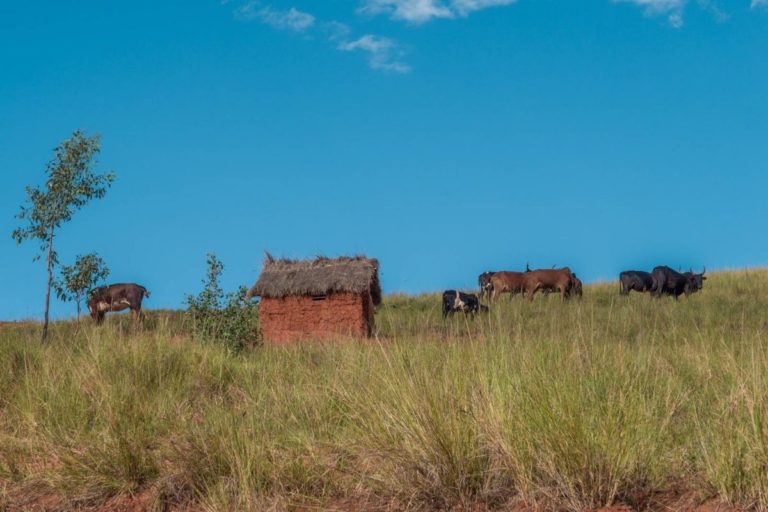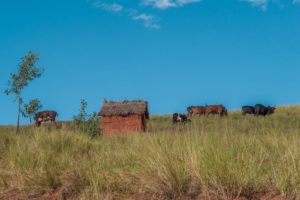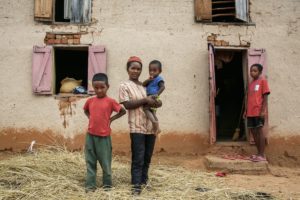According to the Third General Census of Population and Housing, RGPH -3, INSTAT, 2018, more than 80% of Madagascar’s population lives in rural areas, with agriculture, livestock farming, f ishing and agroforestry as their main activities. Yet these rural productive sectors account for only 26% of Madagascar’s Gross Domestic Product (GDP), with growth expected to reach 2.8% in 2021. Agriculture and local forests remain the main source of income and contribute to the food and nutritional security of the Malagasy population. Unfortunately, they are dependent on climatic hazards (drought, cyclones, floods, etc.). These two sectors absorb the vast majority of new entrants to the labour market, estimated at 400,000 young people each year. But it is undeniable that the agricultural sector has for years been facing a lack of skills to fulfil its role.
In the face of these many challenges, mass farmer training, which enables a large number of people to be trained, is one response to the need to professionalise a large number of agricultural actors. Unfortunately, the current agricultural training system in Madagascar has a limited capacity to meet the quantitative and qualitative demand and needs for training in the rural world. Since the beginning of the year, a number of meetings, workshops and discussions have been held with a view to lobbying for the introduction of an updated agricultural training framework.
With 191 members in 13 regions, the FARMADA network has become a platform for exchange and consultation between the various players working in agricultural training. This structure has already made it possible to unite and make their voices heard as part of the process of drawing up the SNFAR, adopted in 2012. With this in mind, the FARMADA network carried out a diagnosis of mass farmer training in Madagascar as part of the initiative supported by Fanainga+.
The main results of the diagnosis were shared, and the collective note, which included suggestions for improving mass ARF put forward by the key players, was presented to the ministries concerned. In-house training for network members on advocacy techniques and the context of the FAR was also carried out so that the network could draw on its resources in drawing up the advocacy document. These training sessions were followed by a plenary sharing session in Antananarivo attended by officials from the ministries concerned, namely the Ministry of Agriculture, Livestock and Fisheries, the Ministry of Vocational Technical Training and the parliamentary community in charge of agriculture and livestock. This session also enabled the members of the network to reach agreement with these technicians on the content of their proposals for regulatory frameworks for the FAR.
This initiative also responds to an immediate need, as in recent years there has been a proliferation of mass training courses that do not even meet the prerequisites of agricultural training as a large-scale training action, aimed at the farming community and farmers, supported by one or more schemes, anchored in its territory, whose actions are integrated into a national and regional vision and implemented at local level (definition of the FORMAPROD scheme).
The “Etats généraux de l’Emploi et de la Formation” held in July 2024 also looked at the Rural Development sector and placed agriculture and livestock farming among the five sectors of activity with the greatest potential for growth and job creation. One of the main lines of the resolution of these Estates General is the renovation of the FAR, which should therefore be the subject of priority investment for the development of skills. With this recognition of the FAR as a significant lever for improving the performance of the agricultural sector, the FARMADA network is strengthening its commitment to continuing its efforts to promote training schemes that enable young people to acquire the knowledge, skills and behavioural qualities needed to practise an agricultural profession on a long-term basis (sustainable installation).
The initiative led by the FARMADA network and supported by Fanainga+ is aimed at consolidating the mass agricultural training systems in Madagascar, to ensure greater coherence and complementarity between the existing systems. The next stage of this initiative will therefore be to argue in favour of updating the FAR at forthcoming parliamentary sessions.





